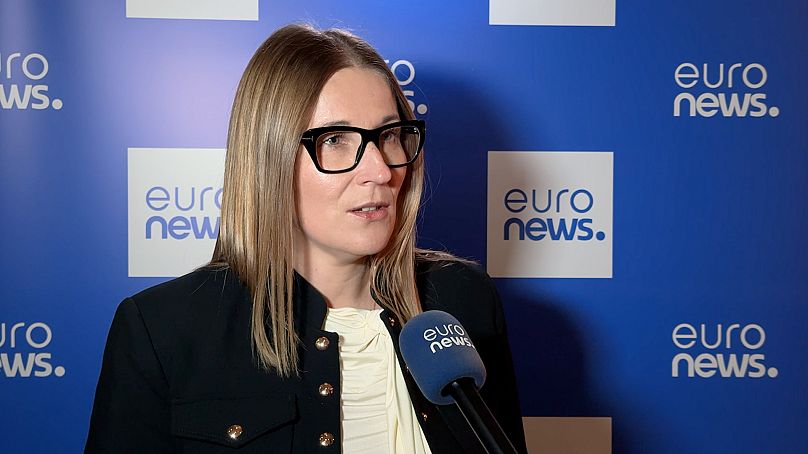Poland's banking sector - still too small to meet economic ambitions?

"The Polish banking sector is today one of the smallest in the European Union when compared to the size of the country's GDP," said Agnieszka Wachnicka, vice-president of the Polish Bank Association.
Although Poland is currently the sixth-largest economy in the European Union, its banking sector ranks only 24th or 25th in terms of size.
"It looks slightly better when measured by assets, but worse in terms of capital. This means our sector is simply too small to meet the investment needs of the Polish economy," Wachnicka added.
This is a serious limitation, given that Poland has one of the lowest investment rates in the EU. As the country faces the need to finance massive infrastructure, transformation, digital, and defence projects, the shortage of bank capital is becoming a bottleneck for growth.
"If our banking sector as a consortium is able to finance one project worth 50 billion złoty but the total needs reach trillions, we still have a big job to do," the expert said.
Fund drain and regulatory uncertainty
According to Wachnicka, one of the main reasons for the sector’s weak capital position lies in costly burdens imposed in recent years. The issue of Swiss franc mortgages, loan holidays, and plans for new banking taxes have all limited banks’ ability to build up their own funds.
"The sector’s equity has been significantly drained. Losses from these measures are typically written off against own funds, which means they shrink. And new proposals for additional taxes will only slow down the recovery process," noted Wachnicka.
This is not only a problem for the banks themselves. Smaller funds mean less stability in the sector and lower lending potential. As Wachnicka explains, every bank operates under concentration limits that define the size of projects it can finance. When capital is too low, banks simply can’t engage in the largest investments.
Modernity: Poland's strength
Paradoxically, Polish banking has a reputation as one of the most modern in Europe. Wachnicka stressed that this success stems from the fact that Poland started with a clean slate, bypassing the 'analogue' banking stage that dominated the West for a long time.
"We moved very quickly to modern, electronic payment instruments. We were the first country to introduce contactless cards, and today, as many as 76% of electronic banking customers rely exclusively on mobile apps," she said.
This success reflects not only strategic decisions by banks but also the Polish public’s openness to innovation.
"Poles adapt to new technologies very easily. Many companies have tested their payment solutions here — and if something worked in Poland, it usually succeeded elsewhere too," Wachnicka added.
Between ambition and limitations
Experts agree: the Polish banking sector today stands at a crossroads.
On one hand — it’s highly modern, digitally advanced, and supports a fast-growing economy. On the other — it faces limited capital strength and increasing regulatory pressure.
In order to meet the challenges of energy transformation, digitalisation and increased security, the banking sector needs to strengthen its capital base and expand its ability to finance large-scale projects.
Today


